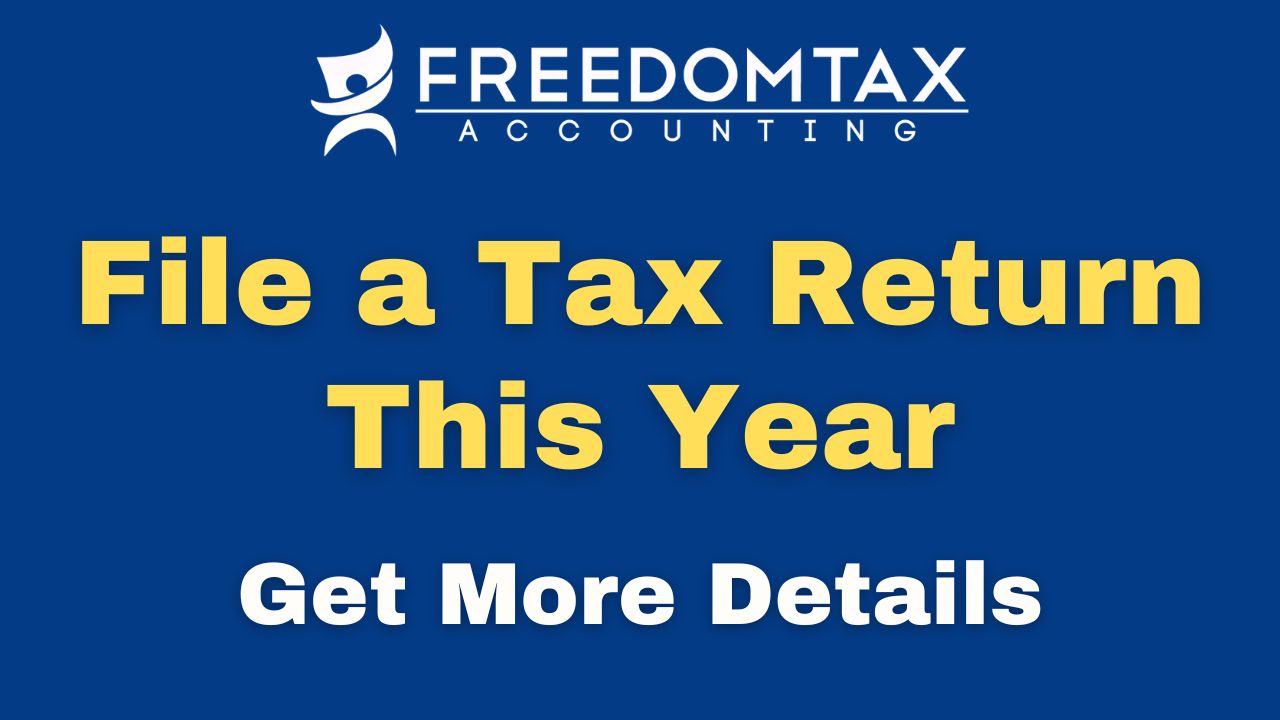
File a Tax Return This Year
In today’s complex financial landscape, understanding your tax filing requirements is more crucial than ever. With the myriad of responsibilities that come with earning an income, ensuring that you’re compliant with the IRS’s mandates can save you from potential penalties and maximize your returns.
- The world of tax has seen significant shifts, especially in recent years. The IRS frequently updates its guidelines, making it essential for individuals to stay updated. For instance, the tax laws and thresholds of 2022 might differ from those in 2023.
- Filing your tax return isn’t just about compliance; it’s about understanding how different income streams, deductions, and credits can affect your overall income tax liability. Resources like the IRS Official Website provide valuable insights into these changes, ensuring that taxpayers are well-informed.
- Beyond just the annual return, there are other considerations to keep in mind. For instance, understanding the difference between federal tax and state tax, or how specific deductions can impact your potential refund. The USAGov’s Guide to Filing Taxes is an excellent resource for those looking to delve deeper into these topics.
As we navigate the financial year of 2023, it’s imperative to be proactive. Whether you’re looking at potential deductions for the previous year or planning your tax filing strategy for the current year, a clear grasp of the requirements will ensure you’re in the best position possible.

Factors Determining the Need to File a Tax Return
Income Level
Understanding your income level is the first step in determining whether you need to file your taxes. The IRS has set specific income thresholds that dictate who must file a federal income tax return.
- For instance, if your gross income surpasses a certain amount, you’re mandated to file taxes. This amount varies yearly and is influenced by factors such as inflation.
- Resources like Freedom Tax Accounting and H&R Block provide tools that can help you determine if your income level requires you to file. They also offer insights into how to file your federal income tax efficiently.
Filing Status
Your filing status plays a pivotal role in your tax preparation. There are several statuses, including Single, Married Filing Jointly, and Head of Household, to name a few.
- Each status comes with its own set of income thresholds. For instance, the threshold for a single individual might differ from someone filing jointly with their spouse.
- Utilizing tax software or consulting with a tax preparer can provide clarity on which status is most beneficial for you. Websites like IRS Free File offer guidance on this, ensuring you choose the right status for your taxes in 2023.
Age
Age is another determining factor when deciding if you need to file your federal tax return. The IRS has different requirements based on whether you’re below or above a certain age.
- Younger individuals, especially those just starting their careers, might have different tax preparation needs compared to older, retired individuals. For instance, someone in their early 20s might not have the same deductions as someone in their 60s.
- Organizations like AARP provide tax counseling for the elderly, ensuring they’re aware of age-specific deductions and credits. On the other hand, younger individuals might benefit from tax software like e-file to simplify their filing process.
Dependents
Having dependents can significantly impact your tax situation. Whether it’s children, elderly parents, or other family members, dependents can influence your tax credit eligibility and overall tax liability.
- For instance, the child tax credit is a significant relief for parents, reducing their tax burden.
- Dependents can also affect your filing status. If you’re a single parent, you might qualify for the Head of Household status, which comes with its own set of benefits.
- It’s essential to consult with professional tax preparation firms or use tools like IRS’s tools to understand how dependents can affect your federal and state income taxes.
In conclusion, various factors determine whether you need to file a tax return for a particular year. By understanding these factors and utilizing available resources, you can ensure that you’re compliant with IRS requirements and maximize your potential refunds.
Special Circumstances
Self-Employment
Being self-employed brings its own set of tax considerations. Unlike traditional employees, those who are self-employed often face:
- A lower income threshold for when they need to file taxes. This means that even if you earn a relatively small amount from your self-employment ventures, you might still be required to file.
- The necessity to pay self-employment tax. This tax covers Social Security and Medicare, and it’s crucial for self-employed individuals to understand their obligations.
Foreign Income
For U.S. citizens who earn income abroad, there are specific tax implications to consider:
- The U.S. requires its citizens to report all global income, meaning if you earn money outside the country, you must declare it when you file your federal income tax.
- However, there’s the Foreign Earned Income Exclusion, which allows qualifying individuals to exclude a certain amount of their foreign-earned income from U.S. taxes.
Other Income Types
Apart from regular employment income, there are other types of income that might necessitate tax filing:
- Rental income: If you rent out a property, the income you receive is taxable. It’s essential to report this when you file your taxes.
- Dividends: Income from investments, like dividends from stocks, is also taxable.
Understanding the various special circumstances that affect your tax situation is crucial. Whether you’re self-employed, earn income abroad, or have other types of income, being aware of your obligations ensures you remain compliant and can maximize potential refunds.
Benefits of Filing Even if Not Required
Claiming Refundable Credits
Even if you’re not mandated to file your taxes, doing so can offer several advantages. One of the primary benefits is the opportunity to claim refundable credits.
- The Earned Income Tax Credit (EITC) is a prime example. Designed primarily for low to moderate-income individuals and families, the EITC can significantly reduce your tax liability. In some cases, if the credit is more than what you owe, you might receive a tax refund.
- Even with a low gross income, you might be eligible for such credits.
Protecting Against Identity Theft
In the digital age, identity theft is a growing concern. One way to safeguard against this is by filing your tax return, even if it’s not obligatory.
- When you file your federal income tax, it becomes challenging for fraudsters to file a fraudulent return in your name. This is because the IRS will already have a return associated with your Social Security number.
Tools and Resources
IRS Online Interview Tool
Navigating the complexities of tax can be daunting. Thankfully, the IRS offers tools to simplify the process.

- The IRS Online Interview Tool is designed to help taxpayers determine whether they need to file taxes. By answering a series of questions, the tool provides a tailored recommendation based on your specific situation.
- It’s a valuable resource, especially for those unsure about their filing requirements.
IRS Filing Threshold Chart
Understanding when you’re required to file can be confusing, given the various thresholds based on age, income, and filing status.
- The IRS Filing Threshold Chart provides a clear breakdown of these thresholds. Whether you’re single, married filing jointly, or fall under another status, the chart offers clarity on the income levels that necessitate filing.
- For those looking to file taxes online or through other means, this chart is an invaluable reference. It’s available on the IRS website, alongside other tools like e-file and fillable forms.
While the process of tax filing might seem overwhelming, numerous tools and resources are available to assist. By leveraging these, you can ensure compliance, maximize potential refunds, and protect your financial well-being.
What People Also Ask
Do I need to file a federal tax return if my income is below a certain amount?
While the IRS mandates that individuals with an income above a specific threshold must file a federal tax return, those with an income below this amount might not be required to. However, the exact threshold varies based on factors like your age, filing status, and type of income.
How can I claim a refundable tax credit?
Refundable tax credits are beneficial as they can reduce your tax liability and might result in a tax refund. To claim these credits, you’ll need to file a tax return, even if you’re not otherwise required to. The Earned Income Tax Credit (EITC) is a popular refundable credit. Ensure you meet the eligibility criteria, and when preparing your return, either manually or using tax preparation software, include the relevant information to claim the credit.
What is the IRS online interview tool?
The IRS online interview tool is a digital resource designed to guide taxpayers in determining their need to file a federal income tax return. By answering a series of questions related to your financial situation, the tool provides tailored advice. It’s especially useful for those unsure about their filing obligations.
Where can I find the IRS’ filing threshold chart?
The IRS Filing Threshold Chart offers a clear overview of the income levels that necessitate tax filing, based on various factors like age and filing status. This chart is a valuable reference for taxpayers and can be found on the IRS website. It’s recommended to consult this chart or use services like H&R Block when preparing to file your taxes to ensure compliance.
Conclusion
Navigating the intricacies of tax can be challenging, but with the right knowledge and tools, it becomes manageable. From understanding the importance of your income level and filing status to recognizing the benefits of filing even when not mandated, being informed is crucial.
Moreover, with the myriad of resources available, from the IRS online interview tool to various tax preparation software, taxpayers are better equipped than ever to handle their tax obligations. However, while these tools offer guidance, it’s always recommended to consult with a professional tax preparer for personalized advice, ensuring you remain compliant and maximize potential refunds.
You can contact us by phone, email, or by visiting our offices:
- Address: 1016 E Osceola Parkway, Kissimmee, 34744, Florida, United States
- Phone: 407-502-2400
- E-mail: [email protected]
Remember that we are part of Freedom Group, a conglomerate of companies dedicated to providing quality services in accounting, taxes, financial consulting, insurance, real estate, business incorporation, among others.
As for your finances, we can help you with everything you need.













 Subscribe to my channel
Subscribe to my channel






Post comment
You must be logged in to post a comment.